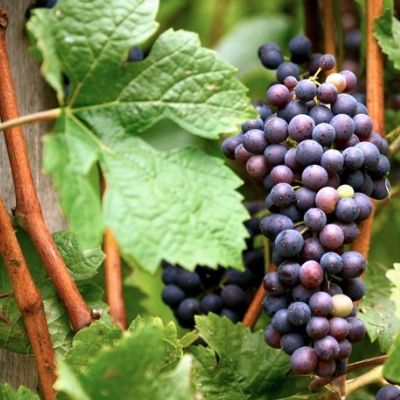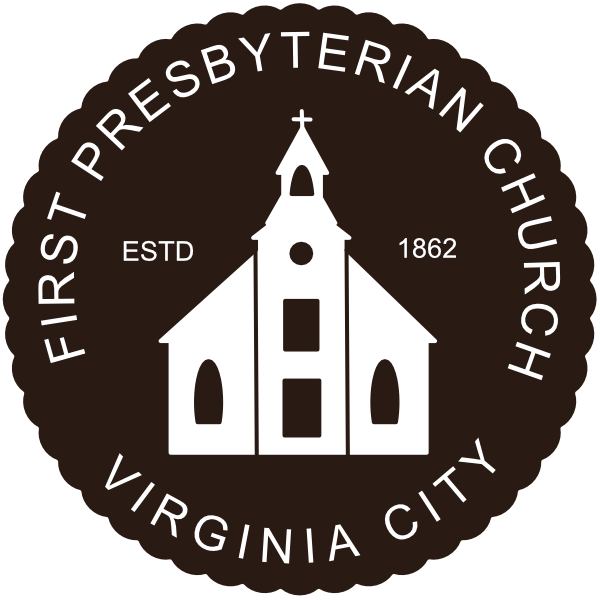
Looking at the calendar, it’s hard to believe that it’s been 10 years since I put the offer in on my house in Sparks. It isn’t huge, but it was more than I ever dreamed I could have owned and I consider myself incredibly blessed to have found it. It is a gem out in north east Sparks, as it was built in the 90s before either of the recent housing booms, when homes were and now are, built on miniscule lots. The biggest selling point for that house was the large(ish) lot, with a large back yard, filled with numerous fruit trees and vines. I mention my house because of the three grape vines the former owner thought to plant along the fences among the peach, nectarine and apple trees. As I looked at those vines, just starting to leaf out, I had a few ah-ha moments about today’s gospel lesson.
Jesus was the consummate storyteller, and used illustrations from the everyday life of his listeners to explain his understanding of the kingdom of God. In today’s reading, Jesus likens himself to a grapevine, in one of the beloved and familiar “I AM” statements. “I am the vine, and you are the branches”. This is an image to which his listeners could easily relate. Grapes grew – and still do grow- well in the Mediterranean climate of the Judea. They were a common and an integral part of the Hebrew diet.
Jesus begins His analogy of the vine and branches by saying that He is the “true vine” and God the Father is the “vinedresser”. To put this in the larger context of the gospel reading, Jesus has mentioned the Father twenty-three times already in the verses preceding our reading today. Now He pictures the loving care of His Father for Him and for the disciples through the image of a vinedresser’s concern for his plants.
A vinedresser is more than a mere farmer, as grapes are no annual crop. The vinedresser’s grape vines remain with him for decades. In the small, family farming of the biblical era, he or she comes to know each plant in a personal way, much like a shepherd knows his sheep. He knows how the vine is faring from year to year and which ones are more productive or vigorous than others. The vinedresser has come to know that each vine has its own personality with the years of nurturing the vines. She learns what they respond to and what special care specific ones need. The vinedresser cares for each vine and nurtures it, pruning just the appropriate amount at the appropriate times, fertilizing it, lifting its branches from the ground and propping them or tying them to the trellis, and taking measures to protect them from insects and disease.
So, when Jesus calls His Father the Vinedresser, He is describing Him in terms of His relationship and attitude as well as His actions in the lives of the disciples. In calling God, a vinedresser, he is telling his listeners that God wants to nurture and care for them personally and knows exactly what to do to make them fruitful. In the hands of such a Vinedresser, the branches can grow in complete confidence and security, maturing into healthy and fruitful vines.
Now it is a key responsibility of the vinedresser to prune the vine on a regular basis. Vines that are pruned routinely will become stronger and bear more and better fruit. Dead or extraneous branches by necessity are removed. As I can personally attest, left alone the vines will grow wild and uncontrolled as I discovered my first summer in my new home when I saw the branches of one vine entangled in my neighbor’s enormous cedar tree, while another sprawled over the fence. Therefore, a second key point of this passage is the reminder that as the vinedresser, God allows for the spiritual pruning of his followers. When we read that the unfruitful branches will be gathered and thrown into the fire, it might be easy to read this passage as one of judgment and threat. Yet, I think the thrust of the passage is promise. Again, let’s look at the larger context. First, Jesus is offering these words to his disciples on the eve of his crucifixion. He knows what is going to happen – both to himself and to his flock – and they do not. They are about to be cut down by his crucifixion and death and he is assuring them that it will not be mere, senseless cutting but that they will survive, even flourish. The second context is that of the community for which John writes. By the time they hear these words, they have already been scattered, likely thrown out of their synagogue for their new understanding of the faith and belief in the renegade rabbi, and have had plenty of reason to feel like they’ve been abandoned by the Jewish society in which they live and in which they were once a part. But John writes to assure them that while they have indeed been cut off, it is the pruning that will lead to a more abundant fruit and life.
No doubt that was hard to believe, as there was precious little evidence available to the disciples or John’s community that they had not been abandoned in the turbulent times in the early decades of the fledgling faith. And it may still be hard to believe on our end as well, as so often our contemporary life simply batters us with no evidence that it is to ward some more fruitful future.
It seems that at any given moment, even when things are going relatively well, there are still so many difficult things with which to contend in this life and it often feels like we are being pruned. Or – maybe it simply feels like we are being cut; cut down by life’s tragedies great or small, cut down by disappointment or despair, cut down by illness or job loss or other circumstances beyond our control and left to wither and die.
But amid this uncertainty and distress, the good news is that Jesus still invites us – actually, not just invites us but promises us – that he will not abandon us, but rather will cling to us like a vine clings to a tree so that we endure, persevere, and even flourish among these present difficulties.
Thirdly, let’s think on this: Jesus says simply, “Abide in me”. Now if Jesus had said, “abide in me or else,” that would be a different matter. But it’s not. “Abide in me,” Jesus says, “as I abide in you.” This is more than good advice. More than an invitation. This is a promise: that no matter what happens, Jesus will be with us. That no matter what happens, Jesus will hold onto us. And that no matter what happens, God in Jesus will bring all things to a good end.
Which is not to say, that everything happens for a reason, because it doesn’t. I think it is part of our human nature to try to make sense of everything, but sometimes, we just can’t. All we can say is, that no matter what happens, we have God’s promise in Jesus to work for good. Keep in mind, after all, that these words were said just before Jesus goes to the cross. And I would argue that the cross was not simply a part of some larger plan, but rather the chief example of God’s commitment to wrestle life and hope from the very place that seems most devoid of life and hope. And if God can take the death of the Son and bring forth life and hope, so we too can have hope that God can redeem our sorrows and disappointments.
And so, we abide in Christ and Christ abides in us. In this single word – abide- comes the comfort and promise. In times of difficulty, it is a reminder that we are connected to a larger and stronger branch. When we are connected with the vine, we flourish and grow.
Finally, this passage invites us to consider how we stay connected to the vine. It opens us to practices of what I consider to be spiritual horticulture. These practices include intentional abiding in God in prayer, cutting out what is inessential or harmful to us, and seeing our intimate connection with the other branches of the vine. Although the vine is the source of life and energy, the branches are not passive; they must participate in their fruitfulness and support the fruitfulness of the other branches. There is an intimate interdependence between God and us: while God’s existence doesn’t depend on our fruitfulness, our bearing fruit enhances God’s work and mission in the world. In tending the branches – our own branch and others – we share in God’s healing presence in the world and advance God’s vision in our time.
In closing, I would like to consider the illustration of a lamp. Before electricity and Thomas Edison, life was very different. For most people, the day ended when the sun went down as burning candles for all hours of the night was very expensive. When electricity was harnessed and met the light bulb, society as we knew it changed dramatically, with the ability to see among in the darkness for extended hours. A light plugged into a power source would be available when needed. Likewise, when we remain connected to God – through community, prayer and the Word, we have power available to us when we need it, the power to survive tough times, the power to share God’s love and to be God’s healing presence in the word, the power to be the people God wants us to be. Go therefore, abiding in God’s love and shine God’s light for the world to see. Amen.
